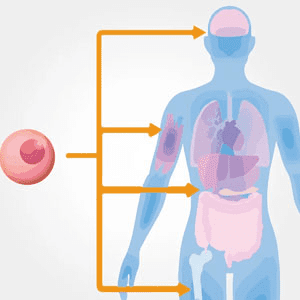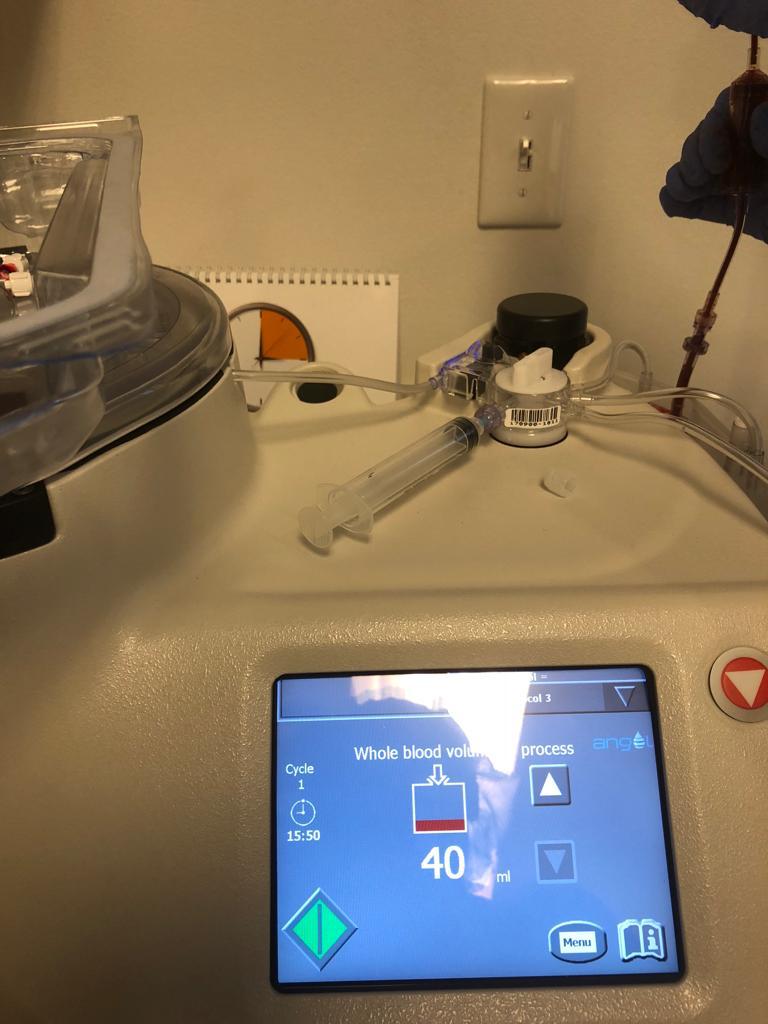Regenerative Medicine

One of the most exciting recent developments in the treatment of chronic musculoskeletal conditions is the use of Platelet Rich Plasma (PRP) and Adult mesenchymal stem cells (MSCs). These therapies are a spectrum of cutting-edge techniques used to naturally treat and heal the root cause of a painful condition, rather than masking its symptoms.
Why PRP-Platelet Rich Plasma?
Platelets are a specialized type of blood cells that are involved in the injury healing process. Human platelets are naturally rich in connective tissue growth factors and can be combined with your adult stem cells for best results. Injecting these growth factors into damaged ligaments, tendons, and joints, stimulates a natural repair process.
Why Stem Cell Therapy?
A great source of regenerative mesenchymal stem cells MSCs can be found in the iliac crest of the hipbone and processed with the bone marrow concentrating system. These stem cells have more chondrocytic (cartilage & bone forming) properties that are especially useful for musculoskeletal conditions.
What conditions does it treat?
Stem cell regenerative therapy can be used in almost all chronic conditions involving multiple systems. For Musculoskeletal and Joint regenerative therapy, they are most commonly used for the treatment of conditions that have failed or responded incompletely to other more conservative treatments, including:
- Osteoarthritis of the Joints, Spine
- Chronic partial rotator cuff tears
- Persistent partial tendon tears, such as lateral epicondylitis (tennis elbow), plantar fasciitis, quadriceps and patellar
- Meniscal (cartilage) tears in the knee
- Chondromalacia patella (patellofemoral syndrome)
- Degenerative disc bulge/disease
Why Amniotic Fluid Allografts?
Placental tissues have been used as biologic dressings for over 100 years. Placental/Amniotic tissue is unique in that it is ‘immune privileged’ and, as such rarely evokes an immune response. The cells inherent in the placental tissues are found to be broadly multipotent, capable of differentiating into other cells. They have shown to have anti-inflammatory, antimicrobial and anti-adhesive properties with wide range of growth factors. Human placenta tissue-derived allografts (other human donor) are an alternative to other regenerative products.
The Procedure
Injections to affected area such as the tendon or joint are performed under all aseptic and antiseptic precautions with ultrasound or fluoroscopic guidance to ensure proper placement. The entire process takes less than one hour.
Precautions
For the first week after the injections, it is critical to avoid anti-inflammatory medications, including Aspirin, Advil, Motrin, Ibuprofen, Naproxen, Aleve, Celebrex, Mobic, and other such anti-inflammatories. These will interfere with the healing response. Your doctor may also prescribe pain medication for post injection discomfort
What to expect after?
Most patients see considerable pain relief with improvement in function within 4-8 weeks. Even though the intent of the treatment is to relieve pain and improve function, there have been reports of cartilage thickening and many patients have successfully delayed surgery. The success rate varies depending on the part of the body being treated but has been noted to be as high as 80-85% for treatment involving the knee joint. Currently, cell assisted regenerative therapies, including stem cell injections, are still considered experimental. Most insurance plans, including Medicare, do NOT pay for cell assisted regenerative therapies. Please contact your physician or health care personnel for more information.
Conditions
- Arthritis
- Cancer Pain
- Chronic Pelvic Pain
- Chronic Abdominal Pain
- Cervical Radiculopathy
- Complex Regional Pain Syndrome
- Compression Fractures of the Spine
- Diabetic Neuropathy
- Fibromyalgia
- Herniated Discs
- Knee Pain
- Low Back Pain
- Migraine Headaches
- Neck Pain
- Neuropathy
- Post Laminectomy Syndrome
- Shoulder Pain
- Trigeminal Neuralgia
- Whiplash CAD
Treatments
- Botox Injection
- Capsaicin (8%) Patch
- Cervical Epidural Steroid Injection
- Disc Nucleoplasty
- Dorsal Root Ganglion Stimulator (DRG)
- Endoscopic Discectomy
- Facet Joint Syndrome
- Hip Joint Injections
- Intrathecal Pain Pump
- Intercostal Nerve Block
- Ketamine Infusion
- Knee Joint Injection
- Kyphoplasty
- Lidocaine Infusion
- Lumbar Epidural Spinal Injection (LESI)
- Lumbar Sympathetic Ganglion Block
- Lumbar Radiofrequency Neurotomy
- Minuteman Procedure
- Medial Branch Block (MBB)
- Minimally Invasive Lumbar Decompression (MILD)
- Platelet Rich Plasma
- Peripheral Nerve Stimulation
- ReActiv8 Procedure
- Radiofrequency Ablation (RFA)
- Regenerative Medicine
- SI Joint Injection
- Stellate Ganglion Block
- Sympathetic Nerve Block
- Spinal Cord Stimulation (SCS)
- Spinal Stenosis
- Trigger Point Injection
- Transforaminal Epidural Spinal Injection (TFESI)
- Vertebroplasty
- Vertiflex Procedure





